Have a friend suffering from memory lapses or concentration problems? Is he or she stumbling or walking clumsily? Watch out, for your friend may be in the early stages of Huntingtons disease.
Check out the Huntington disease pictures and go through the article to learn all about this neurological disorder.
What is Huntingtons Disease?
Page Contents
Picture 1 – Huntingtons Disease
Source – topnews
In simple terms, it is a brain disorder. This particular health condition causes gradual loss of nerve cells in the brain especially in the primary ganglia and cortex region. As a result, several parts of the brain slowly stop functioning. This has a serious impact on the overall health of a person. It generally affects fully adult persons or young adults. Over 15,000 Americans suffer from this illness. Approximately 10 % of all Huntingtons disease sufferers are aged below 20 years.
History of Huntington Disease
The disease owes its name to physician George Huntington. It was Huntington who first described the disease as ‘hereditary chorea’ in the year 1872. The word ‘chorea’ is derived from the Greek word ‘choreia’ which means dancing. Sufferers of Huntington disease actually lose their sense of balance and they seem to be dancing while walking. The malady is also thought to be acquired through genes. That is why the illness was aptly summed up as ‘hereditary chorea’ by George Huntington.
Huntington Disease Causes
As said earlier, heredity is the prime and probably the only reason behind the appearance of this condition. When a defective gene is passed on from the parent to a child, it may result in Huntingtons disease. A trait in a person is determined by two chromosomes, one from the father and another from the mother. But Huntington disease can be caused by a single defective chromosome.
Picture 2 – Huntingtons Disease Picture
Source – nature
Each child of a Huntington disease sufferer has half a chance to inherit it. A person who inherits the defective gene may suffer from it sooner or later in his life. But those who do not acquire it will never develop the malady. There is also no way that he or she can give birth to a Huntington disease affected child. His child may develop the condition only if his partner suffers from it too.
But there are rare cases where a person with no family history of Huntington disease acquires it. Such cases are thought to be the result of a genetic change that occurs during sperm development in the mother’s body.
Huntington Disease Symptoms
Normally, Huntingtons disease symptoms do not appear until a person is in his middle years. But there are also some young persons who show symptoms characteristic of Huntington disease.
The Huntington disease symptoms can be categorized into two categories.
Early Symptoms
Certain symptoms are seen in the early stages of this sickness. These vary from person to person. In average Huntington disease sufferers, an experienced doctor looks for symptoms like :
- Mild, involuntary movements
- Clumsy behaviour, often involving dropping objects from hand
- Stumbling during walking
- Lack of warmth and care
- Forgetting names, recent events and activities
- Depression
- Lethargy
- Mood swings, which often involve angry outbursts
These symptoms become more pronounced as time passes.
Later Symptoms
Picture 3 – Huntingtons Disease
Source – blogspot
In the later stages of the condition, the slight movements give way to jerking. There are uncontrollable movements of the head, face and arms. The flicking movements are also seen in the lower body parts such as the legs. The initial stumbling worsens to lurching. As the muscles become more rigid, the movements gradually become slower.
There are also other symptoms like :
- Slurred Speech – As the neurons get affected, they function less and less. The brain as well as the mouth fails to work properly. Naturally, the speech gets indistinct.
- Eating Difficulties – The mouth and the diaphragm has difficulties in proper functioning. This makes feeding Huntingtons disease sufferers an arduous task. The patient spills food. They also fail to swallow foods properly. They choke while having foods, especially liquids like water.
- Weight Loss – Due to problems in eating, Huntington disease patients suffer from lack of nutrition. This makes them lose a lot of weight.
- Low Immunity – The low nutrition and weight loss leads to low immunity in Huntington patients. The weakening immune system leads to the person contracting diseases like pneumonia. Many people also suffer from infections in the later stages of their illness.
- Aggressive Behaviour – The sufferers often show anger and aggression to people around them. They show a hostile behaviour to society and people in general, without any apparent reason.
- Moodiness – These people often show a stubborn behaviour. This is essentially because of their frustration and depression due to their inability to act properly.
Huntingtons disease Treatment
Huntington disease treatment is practically impossible. The health condition is incurable. The condition mostly ends with the death of the sufferer. The weakening immune system exposes the patient to several illnesses. In many cases, Huntington disease patients die from the illnesses they contract during the later stages.
As of now, there are only certain medications and therapies to manage the Huntington symptoms. Medicines cannot retard the disease. But these can manage the symptoms to some extent.
Medicines
The jerky, uncontrollable movements are usually treated by substances like Tetrabenazine, Clozapine and Clonazepan. But the drugs can bring on side effects like drowsiness, dizziness and nausea. They can even cause depression. This is the reason why patients of depression are never administered Tetrabenazine.
Therapies
There are also speech therapies and physical therapies to help patients control their communication and bodily movements. The speech therapies help patients articulate their feelings in a more distinct manner. The physical therapies assist sufferers to maintain their balance and lower their risk of falling. There are also occupational therapies that help Huntington persons cope with their concentration problems.
Huntington Disease Prevention
Picture 4 – Huntingtons Disease
Source – utah.edu
Preventing this disease is not possible. If you suspect yourself to have this disease, you should consult a good doctor. A blood test can reveal if you have the Huntingtons disease gene. In case you have a parent who is a Huntingtons disease sufferer, you are most likely to be suffering from it too. If you test positive, you can make your family planning and career decisions in an effective way.
Only 5% of people with risk of Huntington disease conduct this test, known as ‘Pre-Symptomatic’ test. But if you conduct it on time, you can save yourself and your family members from a lot of pain later.
References:
http://en.wikipedia.org/wiki/Huntington%27s_disease
http://www.nlm.nih.gov/medlineplus/huntingtonsdisease.html
http://www.medicinenet.com/huntington_disease/article.htm
http://www.healthscout.com/ency/68/275/main.html
http://emedicine.medscape.com/article/1150165-overview

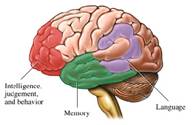
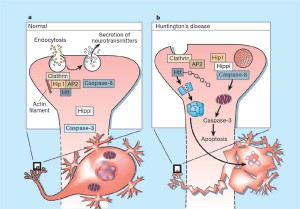
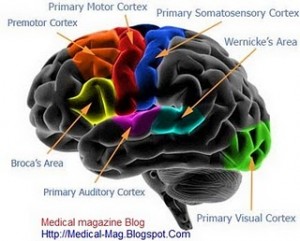
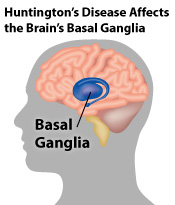
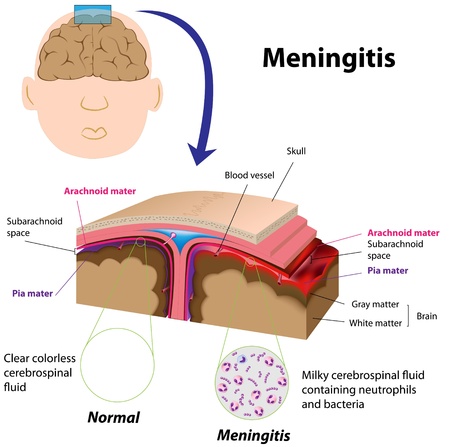
‘Only 5% of people with risk of Huntington disease conduct this test, known as ‘Pre-Symptomatic’ test. But if you conduct it on time, you can save yourself and your family members from a lot of pain later.’ How can they save themselves ‘pain later’ when Huntingtons is incurable?
Hello my mother has huntington disease and the things that i now no about this disease i wish i would of known a long time ago.But i am on top of things now and i am able to go about this now and i’m am getting myself tested for the HD gene and if i come back positive for it i will be getting my children tested for just so they will be prepared and can do something to deal with the situation so that it wont be a problem later on in life.I do wish that there was a cure for this and i don’t understand why there isn’t and there should be more talk about this unknown and uncurable disease because there is a lot of people that don’t no anything about HD and they should.And i do since i have read up on some of the symptons of early HD i do have the symptons.